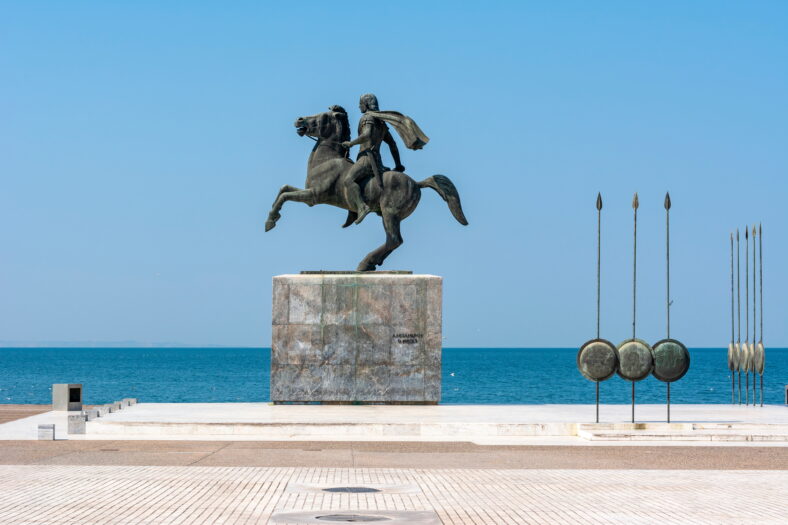The Remains Of An Ancient City Where Alexander The Great’s Grandma Was Born May Have Been Uncovered

The remains of an ancient city named Lyncus, the capital of the Kingdom of Lyncestis, may have been discovered in North Macedonia.
If the discovery is confirmed, it could lead to the location of where Alexander the Great’s paternal grandmother was born.
Lyncestis was a small kingdom that thrived in North Macedonia. During the reign of King Philip II (359 to 336 B.C.), it was incorporated into the Macedonian Empire.
According to historical accounts, Eurydice I of Macedon, the mother of Philip II and grandmother of Alexander, was likely born in Lyncus.
Since 1966, archaeologists have known about the site, which is located near the village of Crnobuki. Initially, it was believed to be a military outpost built to defend against Roman attacks instead of a city. Until now, the full size, scope, and influence of the site had not been uncovered.
In 2023, a team of researchers conducted a lidar survey and used aerial drones with lasers to map out the site’s topography.
This technique can penetrate foliage covering an area and has been used throughout the world for archaeological projects.
The survey revealed that the city had an acropolis that was at least seven acres in size. The archaeologists found the remains of a textile workshop, a theater, and a variety of artifacts, including coins, pottery, game pieces, and a theater ticket made of clay.
They thought that the city was built during the rule of Philip V (221 to 179 B.C.), a long time after Alexander the Great’s death.

Sign up for Chip Chick’s newsletter and get stories like this delivered to your inbox.
But the discovery of a coin minted between 325 and 323 B.C. pushed back its origin, suggesting that the city was around during Alexander’s lifetime.
Furthermore, the research team unearthed axes and fragments of ceramic vessels at the site, indicating that the site had been occupied by humans as far back as the Bronze Age (3300 to 1200 B.C.).
The team plans to continue excavation. So far, they have only scratched the surface, but with each study that takes place, they can slowly put together the pieces of the entire picture.
“This discovery is significant,” said Nick Angeloff, an archaeologist and professor of anthropology at California State Polytechnic University.
“It highlights the complex networks and power structures of ancient Macedonia, especially given the city’s location along trade routes to Constantinople.
It’s even possible that historical figures like Octavian and Agrippa passed through the area on their way to confront Cleopatra and Mark Antony at the Battle of Actium.”
Overall, the findings do not just shed light on North Macedonia’s past; they also contribute to a better understanding of ancient Western civilization. The ancient Macedonian state was one of the first modern states in Europe. It had a major impact on the world.
More About:News